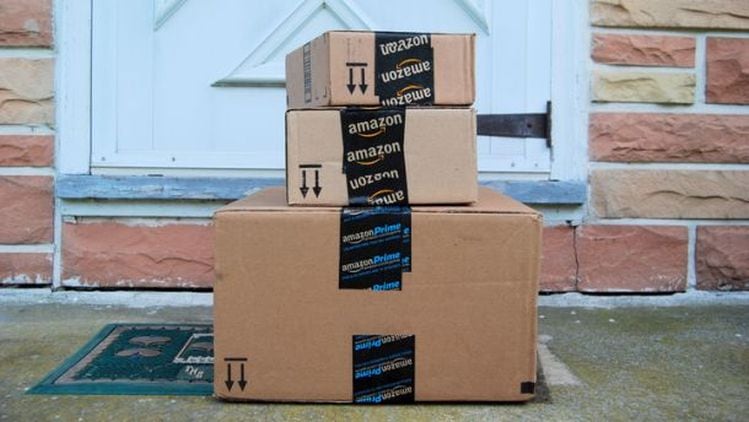In letters sent to legislators over the last few days, the Consumer Brands Association, National Restaurant Association and the US Cattlemen’s Association lauded efforts to curb the spread of the covid-19 virus, but they also warn of negative repercussions from those actions.
To help minimize the economic fallout of new restrictions and reduce the risk of shortages, they ask for additional legislative and financial support to ensure that Americans can continue to access food, beverages and other products that are essential for daily life.
In a March 18 letter sent to federal, state and local elected officials, the Consumer Brands Association lauds “the critical steps that have been undertaken in order to contain the COVID-19 outbreak caused by the coronavirus,” and it assures readers that its members “stand together with the federal, state and local governments with the desire to meet this challenge, and ensure that Americans continue to have access to safe, healthy foods and essential health products including disinfects that help kill and protect against the spread of COVID-19.”
However, it warns, uneven implementation by state and local leaders of guidance from the Centers for Disease Control and Prevention to limit gatherings to 50 or fewer people could threaten their members ability to deliver essential products to consumers.
It explains that while the CDC exempted businesses from the cap on gatherings, decisions to follow CDC guidance are made at the state and local level, where some officials have clearly exempted food, beverage and consumer packaged goods manufacturing facilities and others have not.
“This lack of uniformity is leading to significant confusion and could further deteriorate if a level of consistency across states and municipalities is not achieved quickly,” adds the letter, which is signed by dozens of food, beverage and CPG industry trade groups.
To ensure steady production and availability of their members’ products, CBA and others ask in the letter that “federal and state governments act expeditiously to coordinate a unified, clear and public framework that clearly explains that food … beverage and consumer packaged goods are exempted from the gathering and curfew bans that are starting to take effect.”
It also asks that “if necessary,” the federal exemption be granted to human, animal and pet food manufacturing facilities as well as facilities that produce essential consumer goods critical to slowing the spread of covid-19.
Finally, it asks, that retail stores selling their goods be considered as part of the critical infrastructure definition so that consumers have continued access to their products.
To justify this request, the letter explains that manufacturing facilities are not areas of public gathering and notes that they are “heavily controlled environments that operate under strict food safety requirements, exemplify good manufacturing practices and exercise rigorous hygienic protocols.”
Hard-hit restaurants seek financial relief
The National Restaurant Association in March 18 letter to the President Trump, House Speaker Nancy Pelosi and Majority Leader Mitch McConnel echoed CBA’s support for the collective actions taken so far to minimize the impact of covid-19 and keep Americans safe.
But, just like CBA, it warned that the protective measures are adversely impacting their industry, which “is based on welcoming everyone through our doors.”
It estimates the shuttering of restaurants and bars will cost $225 billion during the next three months, prompt the loss of between five and seven million jobs and cost communities access to places that will not be able to resume service.
Given this threat, it asks for direct and targeted financial relief in the form of a $145 billion restaurant and food service industry recovery fund and $35 billion for community development block grants for disaster relief assistance.
It also seeks $100 billion in federal-backed business interruption insurance, a federal loan program equal to lost revenue, $45 billion in expanded access to federal and conventional loans, and $130 million in disaster unemployment assistance.
Finally, it seeks several tax adjustments, including credits for businesses that are retaining employees, reduced credit card intercharge fees, a temporary payroll tax cut that increases economic activity and a for congress to make technical corrections to the Qualified Improvement Property.
By granting these requests, the National Restaurant Association says, restaurants will have the increased liquidity and access they need to “survive the dramatic loss of profits caused by the coronavirus.”
Coronavirus latest in long list affecting USCA
Impact from the coronavirus is not the only source of anxiety from which the United States Cattlemen’s Association asks USDA Sec. Sonny Perdue for relief from in its March 16 letter.
Rather, it fears that “proper risk management protocols to control the spread of the current pandemic” could impact trade disruptions and market volatility issues related to a fire last summer at the Tyson Foods meatpacking plant in Holcomb, Kan., and a drop in in live cattle futures that since January have lowered values by nearly a quarter.
To soft this accumulative blow, the association asks USDA to “take immediate action through the utilization of your authority under the Commodity Credit Corporation” with funds and programs that can provide immediate relief to cattle producers and feeders experiencing “excessive prices losses.”
Like other food related trade groups, USCA asks USDA to deem as “essential personnel” members of the USDA Agriculture Marketing Service and Food Safety Inspection Services so that plants can be inspected and plants are not immediately shut down “should an employee test positive for the coronavirus.”
Finally, it asks that USDA “monitor anti-competitive buying practices in the days and weeks ahead.”
Given the similarities of the concerns voiced by each group, it is likely more players will reach out to legislators and regulators in the coming days and weeks as the country continues to grapple with coronavirus and any potential long-term fallout.




